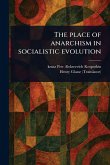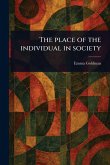George Bernard Shaw, the celebrated playwright and social critic, dissects the core tenets of anarchism in "The Impossibilities of Anarchism." This concise and thought-provoking essay, a cornerstone of socialist thought, explores the practical limitations of anarchist ideals within the framework of complex societies. Shaw, known for his sharp wit and incisive analysis, examines the challenges of implementing anarchist principles in areas such as governance, economics, and social order. He addresses fundamental questions about human nature and the feasibility of a society without established authority. A vital contribution to political philosophy, "The Impossibilities of Anarchism" offers a compelling counterpoint to anarchist theory, prompting readers to critically evaluate the complexities of political ideologies and social reform. It remains a relevant and insightful examination of anarchism, ideal for anyone interested in political science, socialism, and the ongoing debate surrounding alternative societal structures. This work has been selected by scholars as being culturally important, and is part of the knowledge base of civilization as we know it. This work is in the public domain in the United States of America, and possibly other nations. Within the United States, you may freely copy and distribute this work, as no entity (individual or corporate) has a copyright on the body of the work. Scholars believe, and we concur, that this work is important enough to be preserved, reproduced, and made generally available to the public. We appreciate your support of the preservation process, and thank you for being an important part of keeping this knowledge alive and relevant.
Bitte wählen Sie Ihr Anliegen aus.
Rechnungen
Retourenschein anfordern
Bestellstatus
Storno









